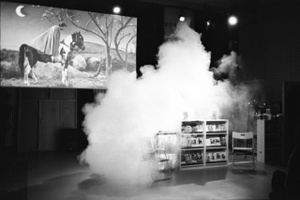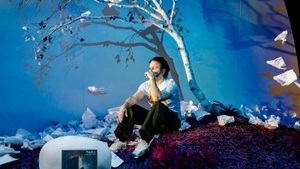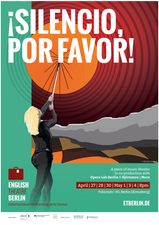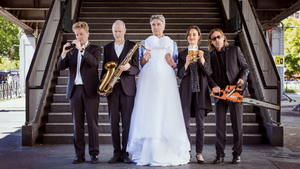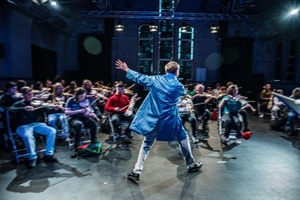PHOTO:
© Foto © 2012, Leo Seidel
Tosca
In the organizer's words:
With over half a century of performance history, this TOSCA production is part of opera's world cultural heritage. Even after more than 400 performances, the atmospheric sets depicting the original Roman settings of the piece continue to captivate and provide a timeless setting for great singer's theater. ... Conductor: Sir Donald Runnicles / Andrea Battistoni; Director: Boleslaw Barlog; With Carmen Giannattasio / Elena Stikhina / Camilla Nylund, Martin Muehle / Vittorio Grigolo, Ludovic Tézier / Gevorg Hakobyan / Erwin Schrott and others.The literary model for Puccini's "torture opera" (Oskar Bie) was provided by Victorien Sardou (1831-1908) with his successful play LA TOSCA, which premiered in Paris in 1887 with Sarah Bernhardt in the title role. Having seen the play on tour in Milan in 1889, Puccini was immediately taken with the material. But the TOSCA plan initially lay dormant for six years until Puccini became interested in the material, presumably inspired by another performance of the Sardou drama in Florence and by Luigi Illica's work on a TOSCA libretto for the composer Alberto Franchetti (1860-1942). After a "conspiracy" between Puccini, Illica and Ricordi, the publisher succeeds in persuading Franchetti to abandon his TOSCA project and give Puccini the setting rights.
As in all Puccini's operas, TOSCA shows how human attention and culinary pleasure can be mutually dependent when the composer's artistic intentions become the standard of interpretation. The outcry as well as the resignation are the essential conditions of Puccini's human attention: the compassion he composed is not content with abstract gestures, but aims at restlessness, at change. The "little things" that Puccini, with modern understatement, called his object, become "big things", if only we want them to be. The connection between Puccini's choice of material, directly and indirectly influenced by the spirit of Zola, Hauptmann and Gorky, and his compositional style shows him to be both a successor to Verdi and a representative of verismo. As is well known, he was a great Wagner admirer, but anything but an epigone. Rather, he created a very personal combination of some of the achievements of both. Working out all the refinements of harmony and all the differentiations of instrumentation that he had gained, he nevertheless redeemed the voice from orchestral entanglement and at the same time gave it a far more broken, sound-sensitive accompagnato in the orchestra than the radical laconic Verdi. The aesthetic theme of TOSCA also stands for this. The musical gesture is as brutal as tender, intelligent as sentimental, precise as dreamy. Puccini absolutely wants truth of life, accuracy also of the musical detail, social attention, the poetic sound of the seemingly everyday, the heroic with calculation, the contrast between committed passion and cool distance.
The police chief Scarpia, the singer Floria Tosca and the painter Cavaradossi claim freedom in every personal variation: as a dynamic-subjective claim to power (Scarpia), as a rebellious ethos aiming at change (Cavaradossi), as a private, simple and at the same time boundless love (Tosca).
In a time of epochal upheavals, such attitudes gain exemplary meaningfulness. Depending on how we understand ourselves and Puccini in this time, TOSCA remains an eerie romance or becomes a portent of the theme of "freedom". In any case, each of the contrary partners pays for this love triangle with death. Their deaths do not claim any redemptive glory for themselves, but are bitter, horrible, definitive.
Götz Friedrich's 1987 re-staging of Boleslaw Barlog's straightforward staging from 1969, which focused on scenic concreteness, takes Puccini's intentions at their word - the mutual conditionality of human attention and culinary pleasure is inspired by the music and becomes the starting point of the scenic interpretation as well. This content has been machine translated.




